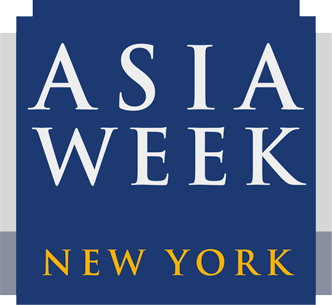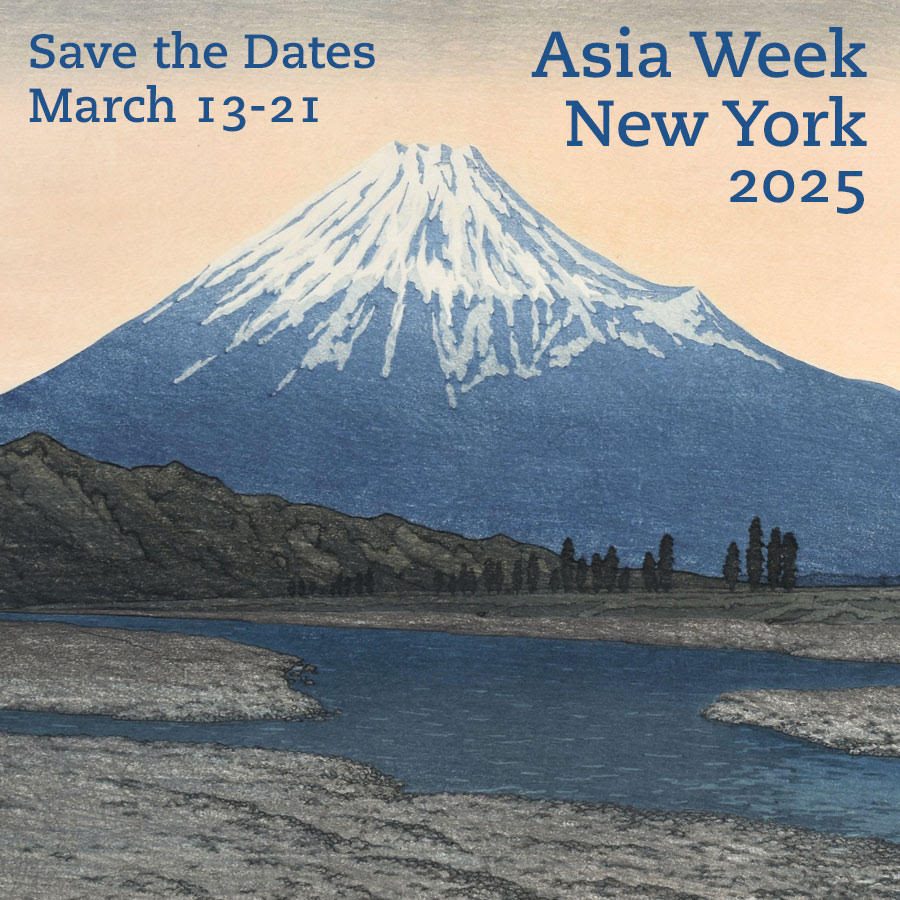
Kawase Hasui, Fuji River (Fujikawa) (detail), 1933, obaiban yoko-e 15 1/8 x 21 1/2 in. (38.4 by 54.5 cm); Courtesy Scholten Japanese Art
As we prepare for the 16th year of our highly anticipated annual celebration of Asian art and culture happening from March 13 to 21, we’re thrilled to unveil an extraordinary array of treasures—from ancient artifacts to contemporary masterpieces—presented by our esteemed gallery members.
Since our founding in 2009 by a passionate group of twelve dealers, Asia Week New York has evolved into a dynamic series of exhibitions, auctions, and cultural events spread across Manhattan and beyond. This event remains a cornerstone for Asian art in the global market and will showcase twenty-seven renowned international galleries and six powerhouse auction houses–Bonhams, Christie’s, Doyle, Freeman’s|Hindman, Heritage Auctions, and Sotheby’s.
The festivities kick off with a series of gallery openings, inviting visitors to experience the convivial spirit that has become synonymous with Asia Week New York. Highlights include curated exhibitions from world-renowned dealers, live auctions, and insightful panel discussions led by industry experts. To view all these must-attend events, visit our Online Calendar here and Interactive Map here. The gala reception at The Metropolitan Museum of Art celebrates the event’s ongoing partnership with one of the world’s most prestigious cultural institutions.
“Marking our 16th year, we are proud to continue connecting art lovers, collectors, and scholars from around the globe,” said Brendan Lynch, Chairman of Asia Week New York.
Whether attending in person or exploring the online offerings, visitors can expect a rich tapestry of cultural heritage and artistic innovation. From ancient treasures to contemporary art, the participating galleries will showcase an inspiring selection of Asian porcelain, jewelry, textiles, paintings, ceramics, sculpture, bronzes, and prints, spanning the second millennium BCE to the present day. Below is a list of highlights according to country of origin:
Ancient and/or Contemporary Indian, Himalayan and Southeast Asian Art
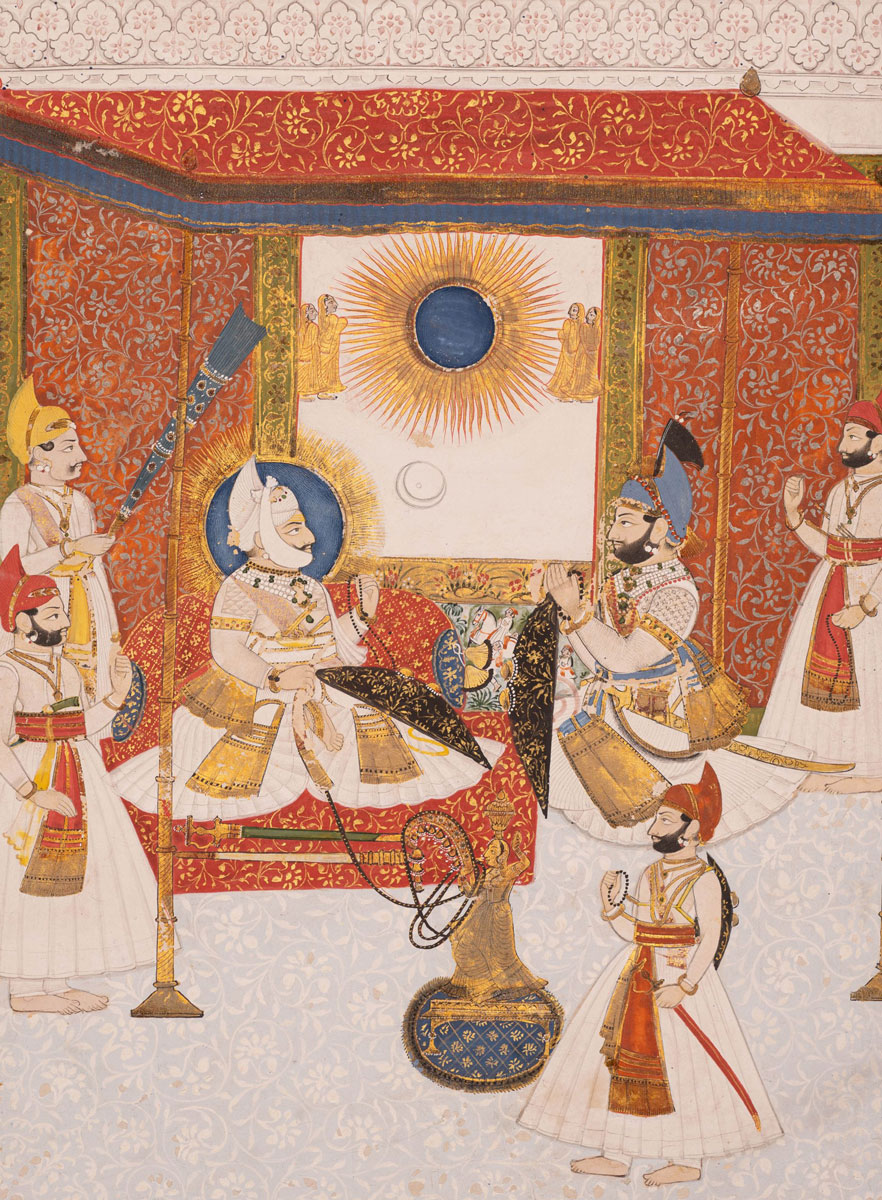
Among the Latest Acquisitions of Indian Art at Art Passages is a detail of Maharana Jawan Singh from Udaipur, circa 1830. Maharana Jawan Singh is seated in an elaborate tent setting, the interior of which is decorated with textiles in floral arabesque as well as heraldic imagery. (Online only)
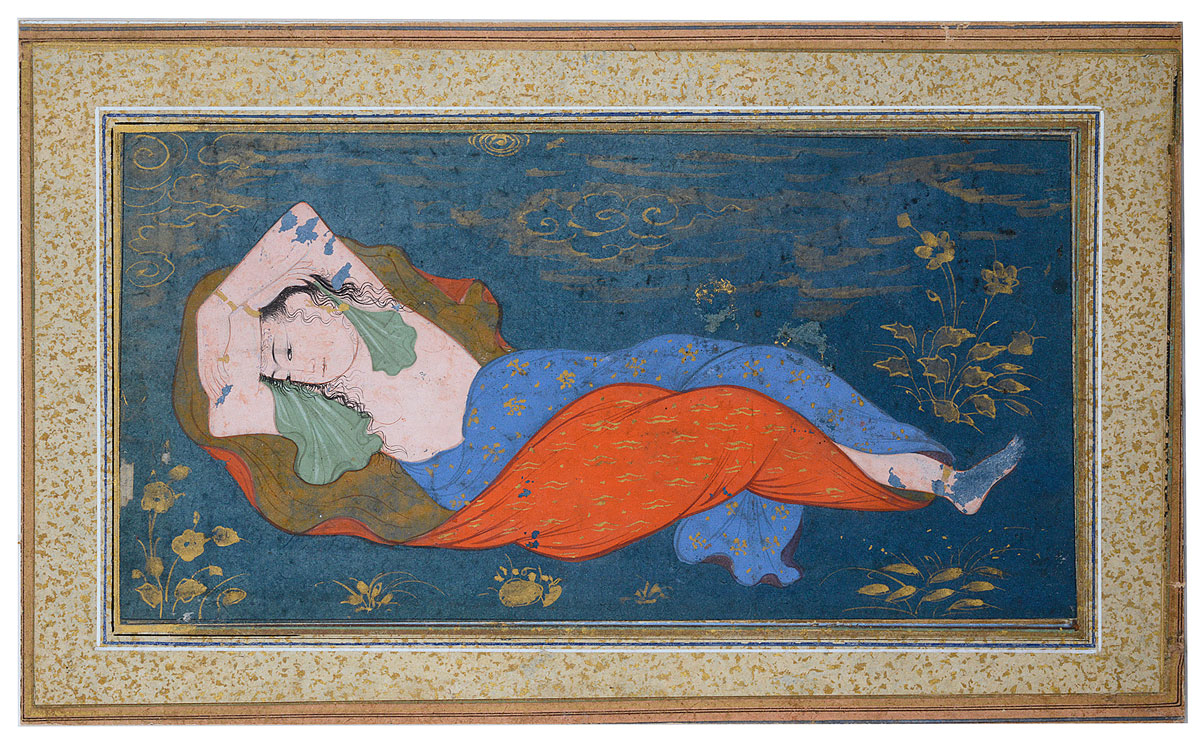
In their exhibition Portraits, Animals and Birds: Works on Paper from India and Persia, Oliver Forge and Brendan Lynch, Ltd. will present a 17th-century portrait of a reclining beauty from the collection of Pierre Le-Tan (1950–2019), the late artist and illustrator famous for his New Yorker covers. This fascinating Safavid painting is a Persian interpretation of the Renaissance depiction of the reclining female nude as painted by Raphael and Raimondi. 67 East 80th Street, Suite 2
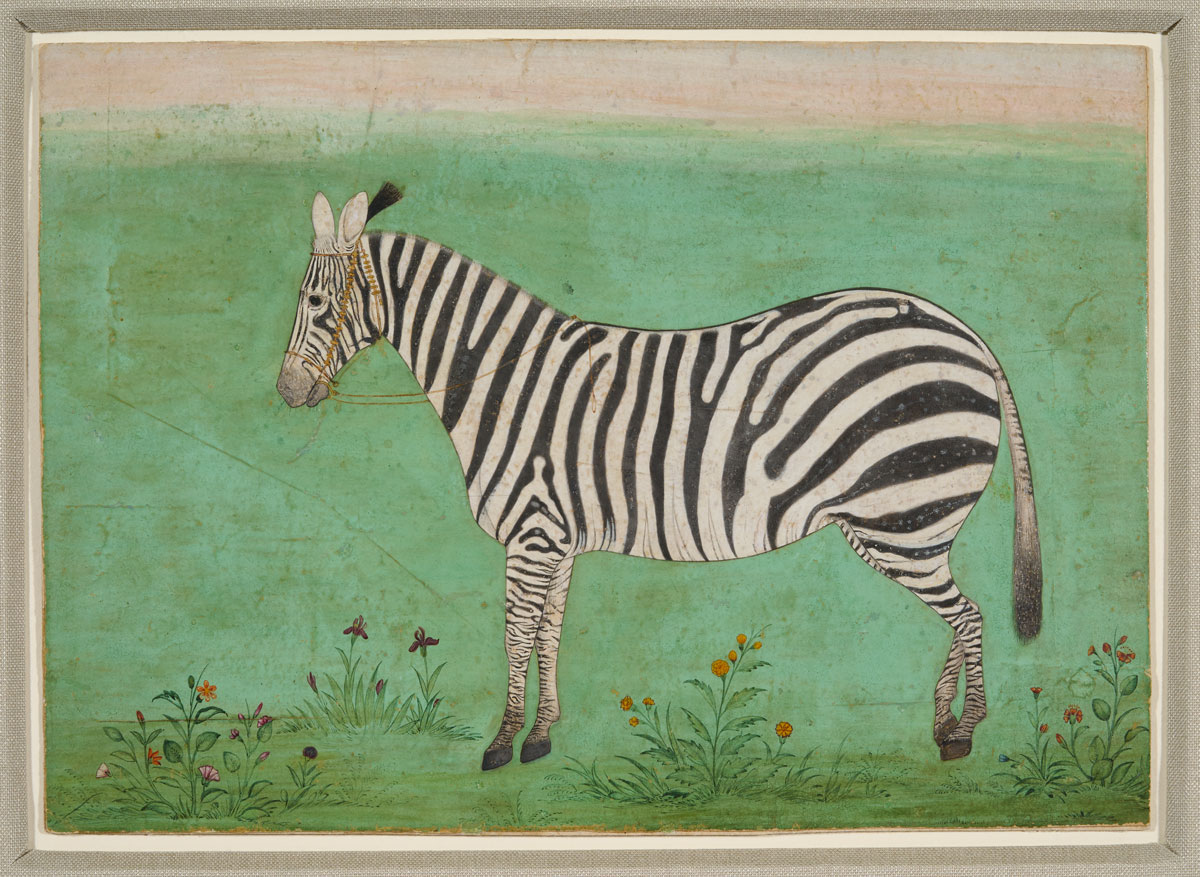
This rare and important Mughal Zebra by a court artist, circa 1625, is one of the many works at Francesca Galloway’s exhibition India’s Fascination with the Natural World, illustrating Imperial fascination with the wider natural world. This fascination is evident in the use of master court painters to record these animals for imperial collections and the great lengths taken to import animals not indigenous to India, such as red squirrels, turkeys, ostriches, and in this case, a zebra. Les Enluminures, 23 East 73rd Street, 7th floor, Penthouse
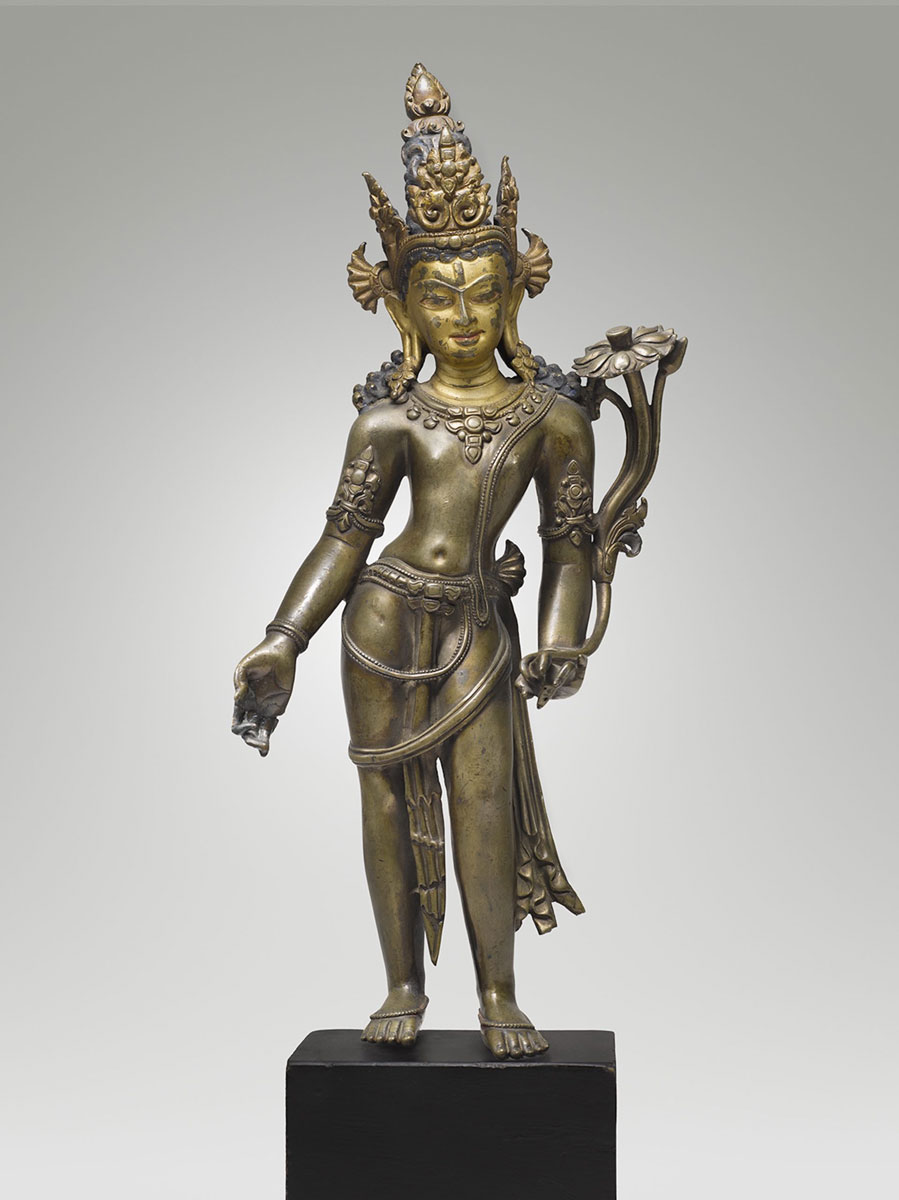
A graceful image of Avalokiteshvara, the Bodhisattva of Compassion, is one of the sculptures in Classical Art from India and the Himalayas at Carlton Rochell Asian Art. Called one of the finest in the Pala tradition, it was most likely made in Tibet and closely modeled after Indian prototypes. The well-proportioned, suavely modeled figure stands gracefully, reflecting the full, perfect body of a youth. Adam Williams Fine Art, 24 East 80th Street
Ancient and/or Contemporary Chinese and Vietnamese Art
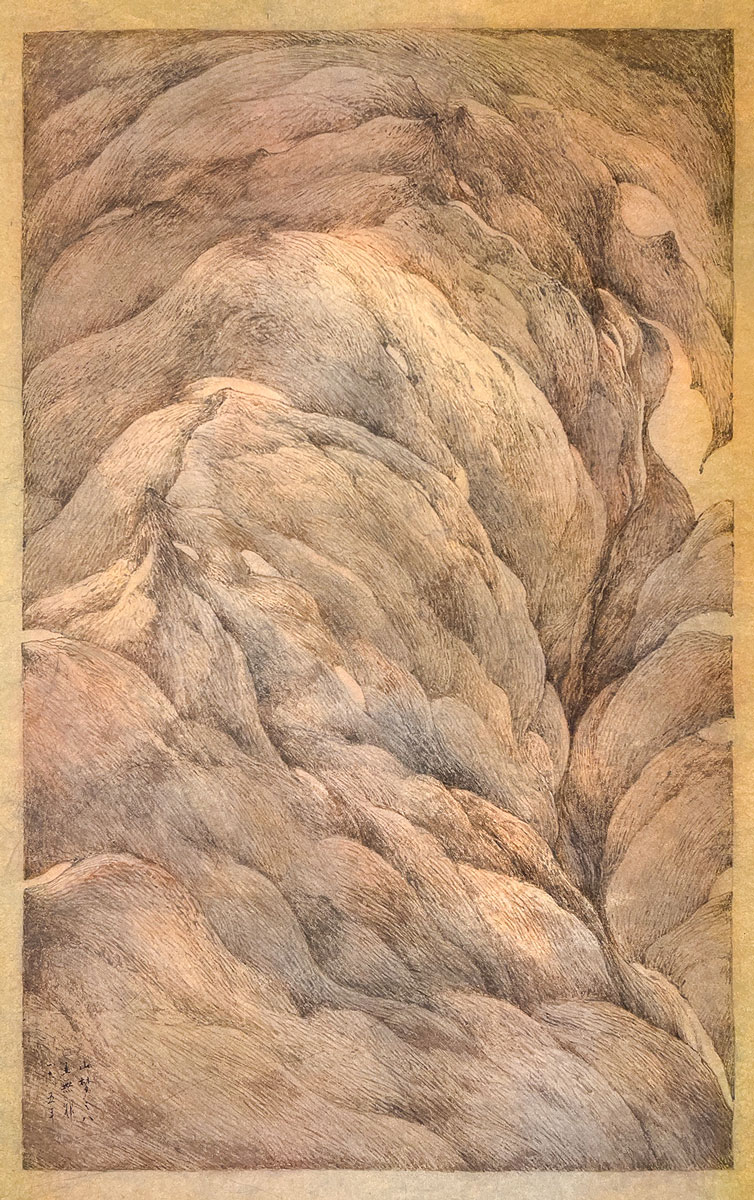
“Mountain Dream 8,” an ink and color drawing on rice paper, by Wucius Wong–the artist’s first exhibition in twenty years –is among a large selection of works in the exhibition Reconstructed Realities: Gu Gan, Lee Chun-yi, Wucius Wong at Alisan Fine Arts. 120 East 67th Street, Main Floor
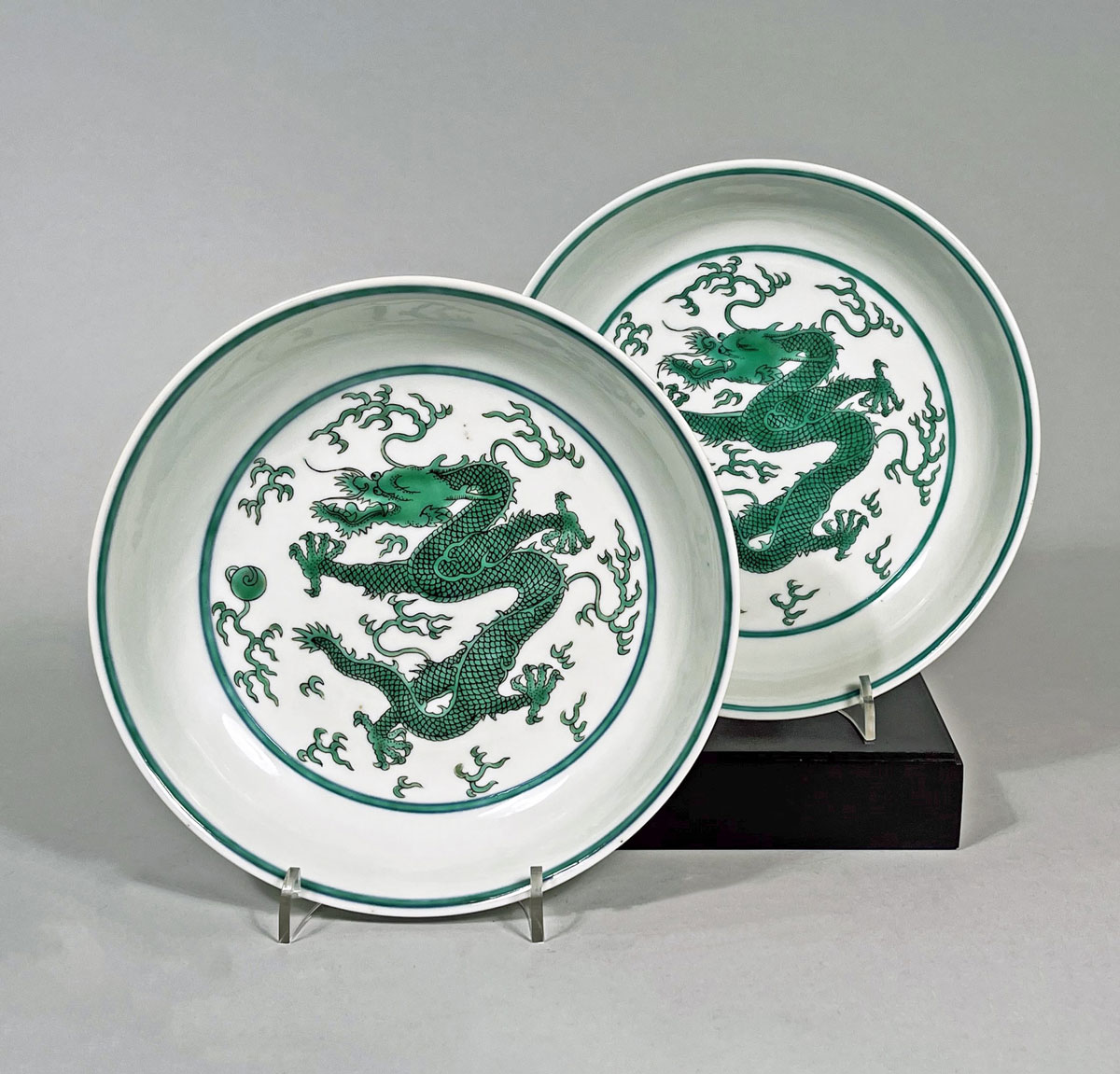
A striking pair of vibrant green and white Chinese Imperial Green Enameled Dragon Dishes with a Qianlong mark dated AD 1736–1795 is among the superb offerings in the Spring Exhibition of Chinese Porcelain and Works of Art at Ralph M. Chait Galleries, Inc. 16 East 52nd Street, 10th Floor
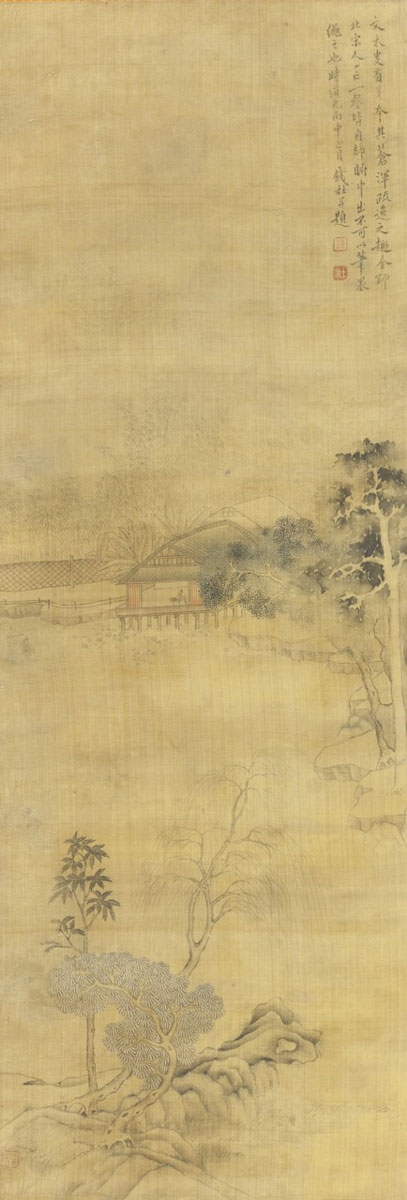
“Summer Reflections by the Lakeside Pavilion” by Qian Du (1764–1845) takes center stage in the Fluid Strength: The Art of Ink at Fu Qiumeng Fine Art. This hanging scroll in ink and color on silk showcases the timeless beauty and artistic significance of traditional Chinese painting. 65 East 80th Street, Ground Floor
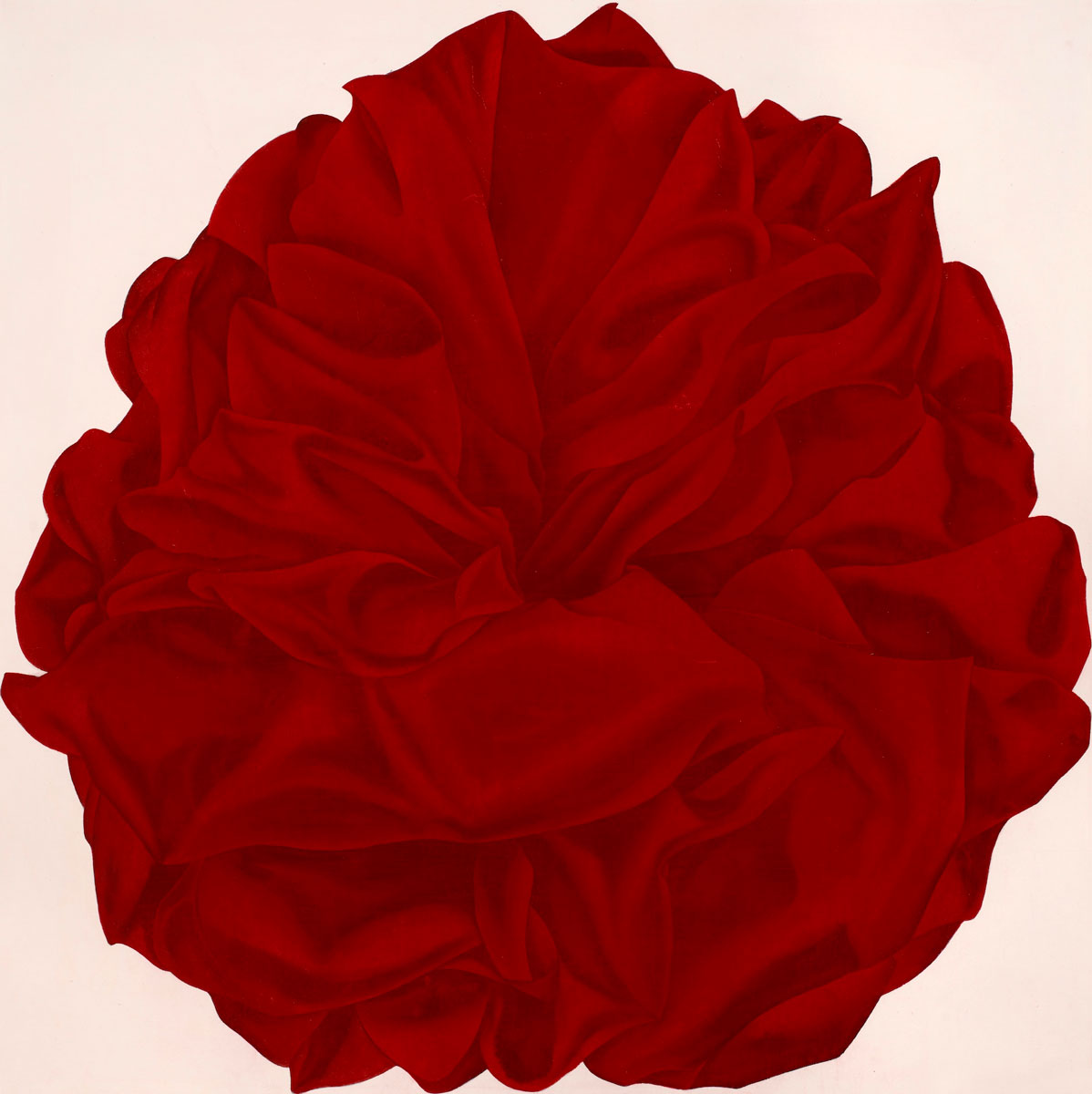
One of the highlights featured at INKStudio is “Sumeru No. 34,” which is part of Kang Chunhui’s Sumeru series. The series explores the relationship between color, shape, light, dimension, and boundary through the form of the fold. Folds of draping fabric are a key artistic element in Gandharan Greco-Buddhist sculpture and form the basis for the brush-line mode of early Chinese figure painting that later becomes the essence of East Asian brush painting. By appointment only [email protected]
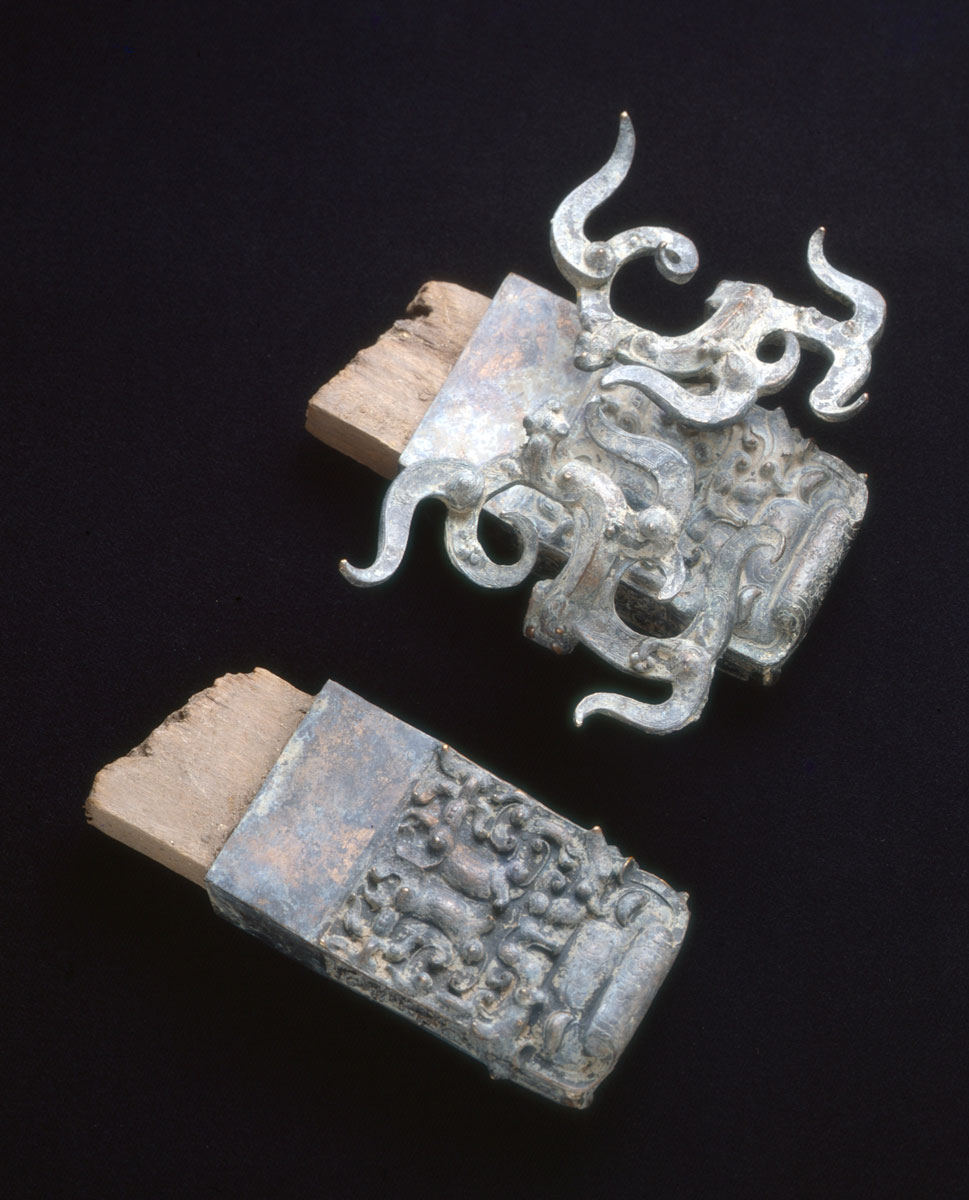
In their exhibition, Separate Realities, Kaikodo LLC will feature 5th-century BCE Bronze Snake-decorated Finials from Eastern Zhou, exemplifying the strikingly innovative bronze-casting methods that made such creations possible. This piece is relevant to the year of the snake as a relic of ancient Chinese enterprise and ingenuity. (Online only)
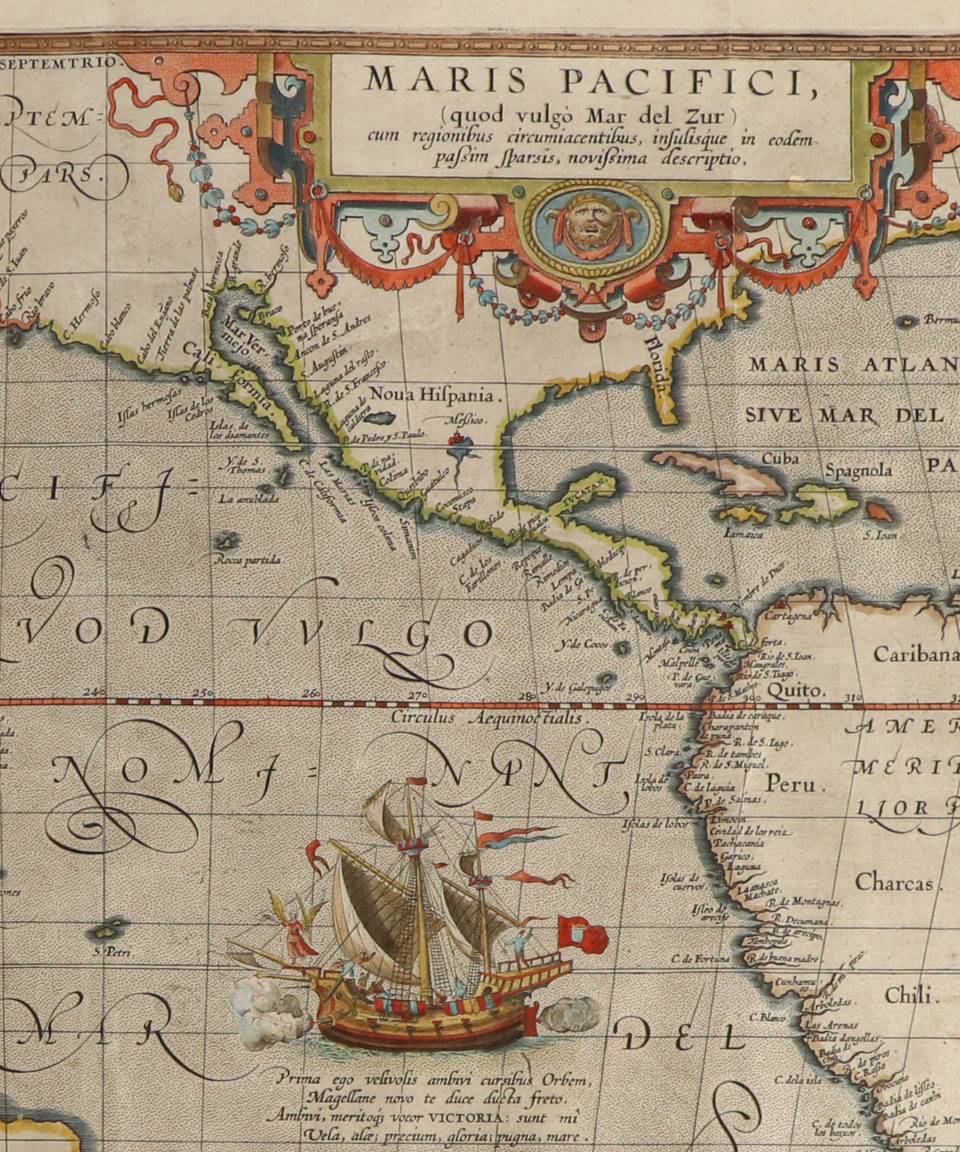
Lark Mason Associates exhibition, Maps of Asia and Works of Art, a selection of early western maps of Asia, includes a representative group of cartographers highlighted by Maris Pacifici, by Abraham Ortelius. This map was published in 1589 in his Theatrum Orbis Terrarum. It was not only the first printed map of the Pacific, but it also showed the Americas for the first time. Also on view are Masterworks of Chinese Art from the Ming and Qing Dynasties including a Chinese Painted and Inlaid Lacquer Cabinet and a Chinese Mother of Pearl and Gold Foil inlaid Blossom-shaped Box, both from the Kangxi Period. 229 East 120th Street
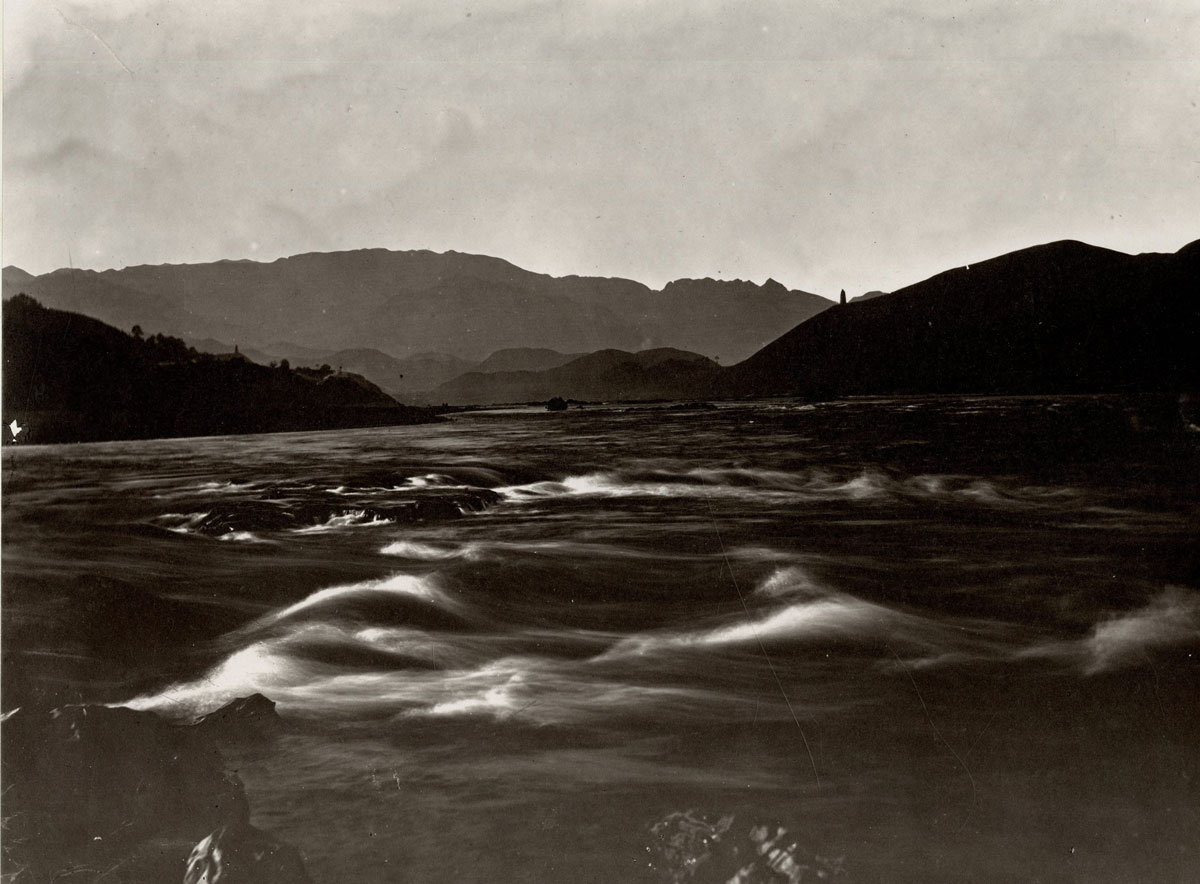
The Loewentheil Photography of China Collection presents Sun and Silver: Early Photographs of China by Lai Afong and John Thomson, which brings together masterpieces by two giants of 19th-century photography of China—Lai Afong and John Thomson—who originated many significant developments in early Chinese photography. Among the photographs is “Rapids at Nanping, River Min,” which first captured the imagination of Lai Afong in 1869 and later by John Thomson in 1870. 10 West 18th Street, 7th Floor
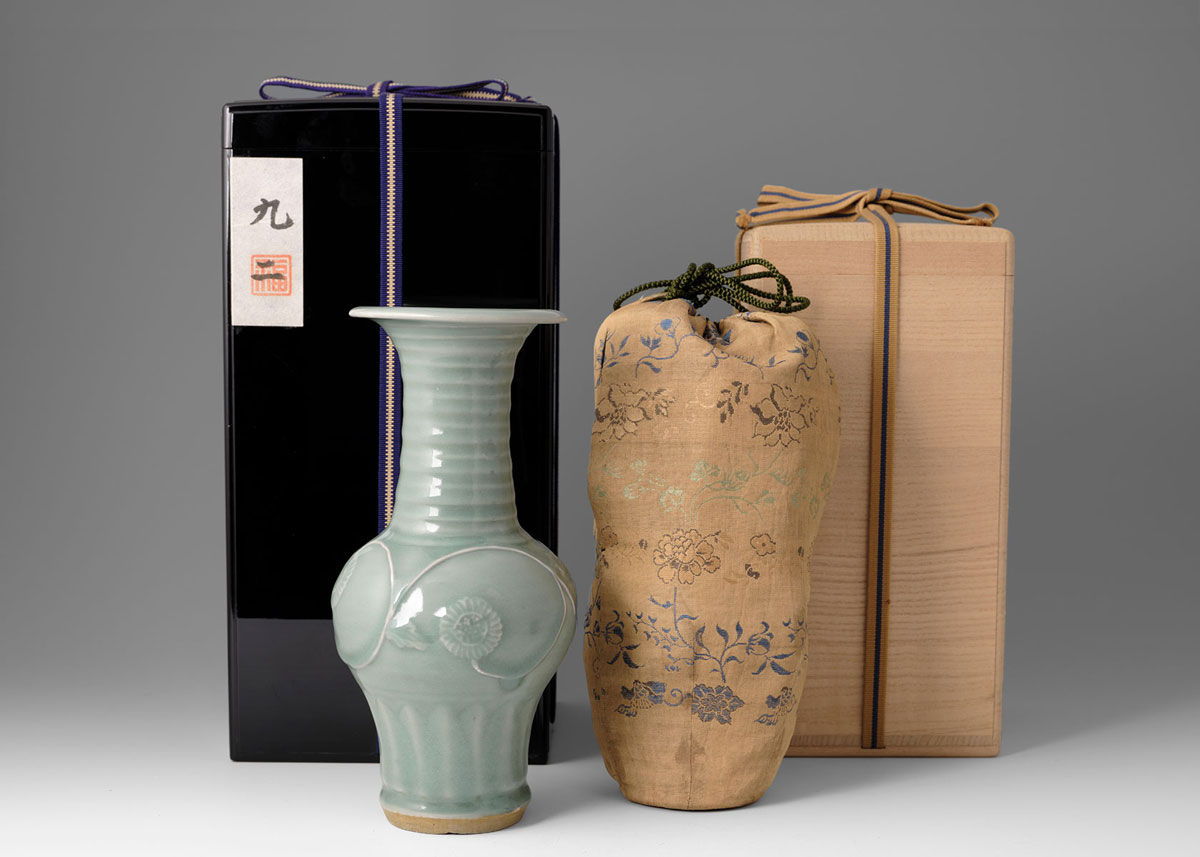
This graceful 14th-century Chinese Yen-Ten (Phoenix Tail) Longquan Celadon Vase from the Yuan Dynasty (1271–1368) is among the many ancient ceramic wares in Green Glazed Ceramics from China, Japan, Korea and Vietnam at Zetterquist Galleries. Such vases, produced for both domestic and export use, were often presented in pairs for temple or large residential altars. Typically crafted in celadon, they date from the Southern Song Dynasty to the Ming Dynasty and are frequently found in Japan and Southeast Asia. 3 East 66th Street, Suite 2B
Ancient and/or Contemporary Japanese Art
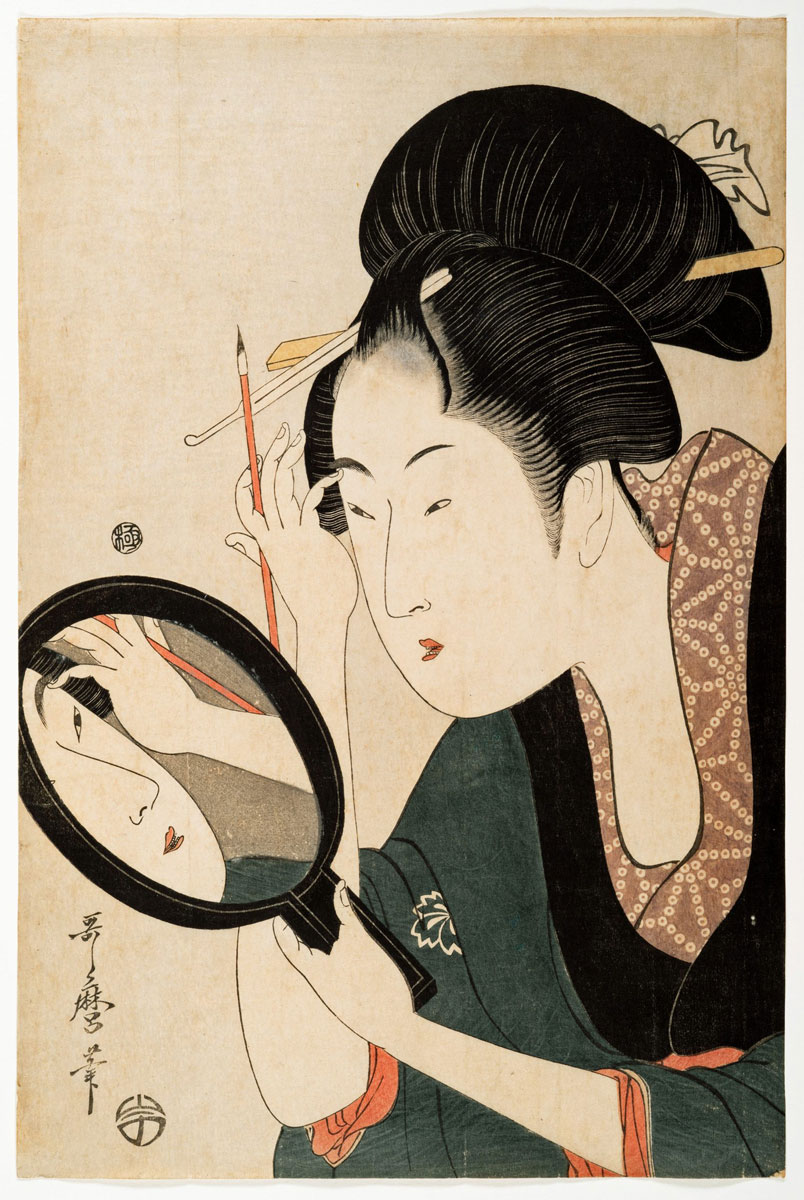
“Oban tate-e, courtesan applying eyebrow makeup,” by the prolific Kitagawa Utamaro (1753–1806), is one of the many Japanese woodblock prints in 250 Years of Japanese Woodblock Prints at The Art of Japan. Originally an object of worship, the mirror has become an object of value, offered as a precious gift. The Mark Hotel, 25 East 77th Street, Suite 215
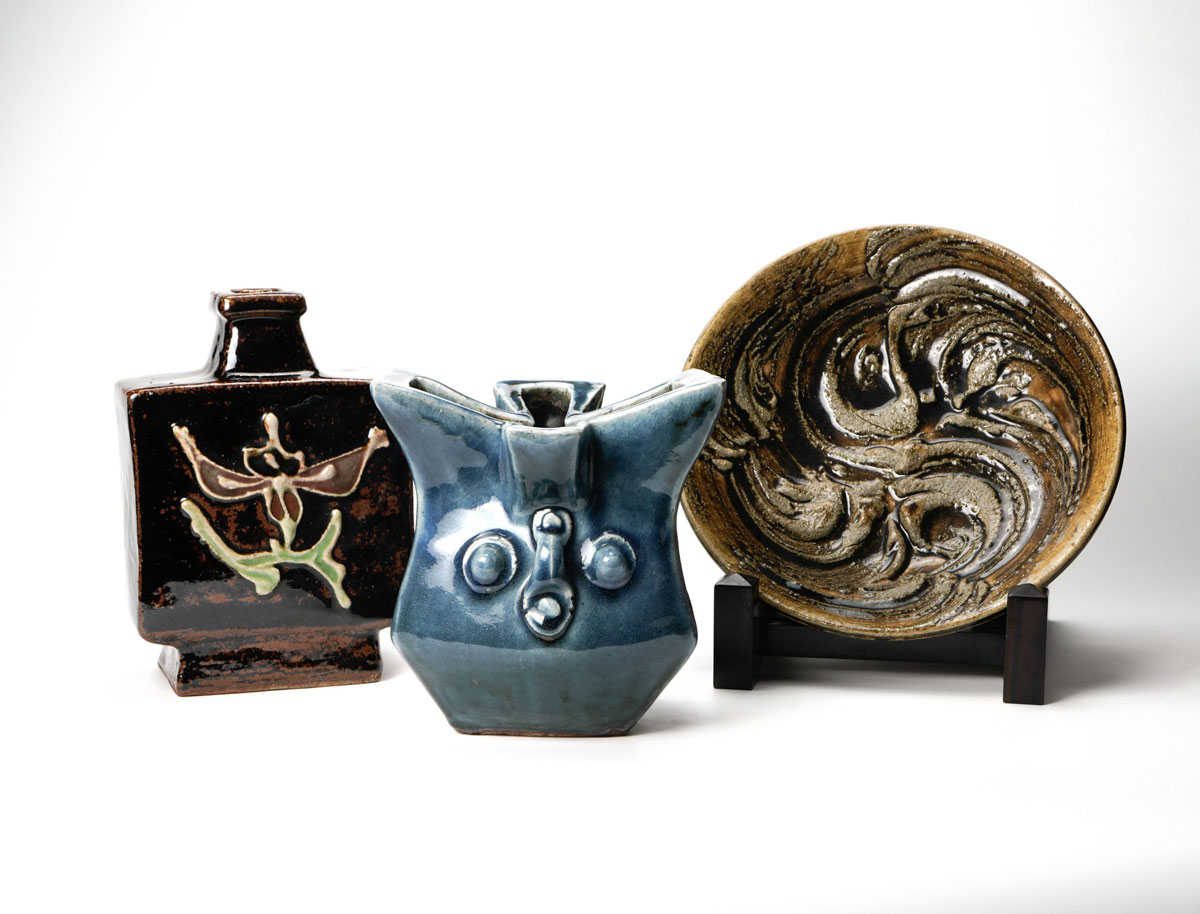
In Mingei Modern, Dai Ichi Arts, Ltd. presents a group of ceramic works by Kawai Kanjiro (1890–1966), one of the founding figures of the Mingei Movement. From left to right: the flat, square jar from the mid-1950s, the 1961 stoneware flask featuring Kawai’s signature Gosu blue glaze, and the 1955 platter with a Hakeme glaze, which reflects Kawai’s deep engagement with traditional Korean ceramic techniques. 18 East 64th Street, Suite 1F
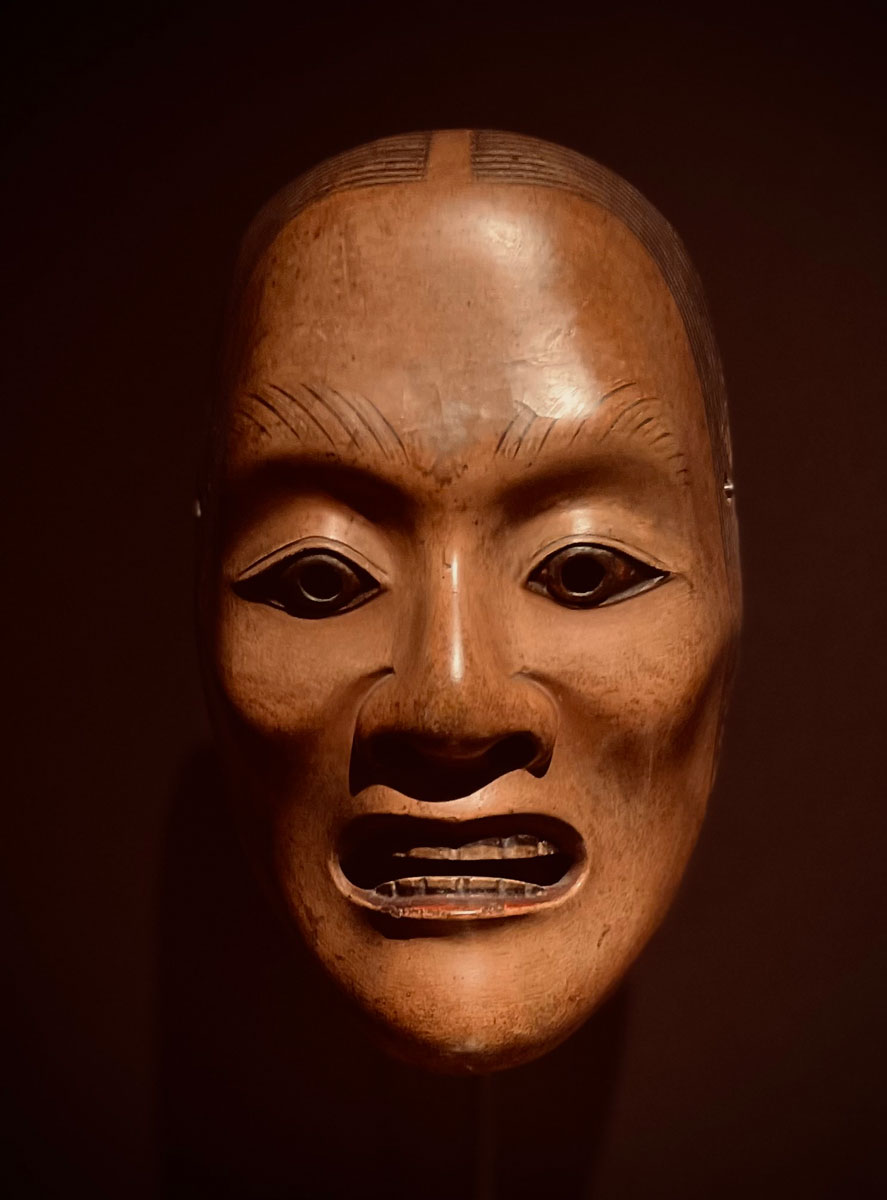
After a brief hiatus, Carole Davenport returns to Asia Week New York with What’s in a Title: Japanese Works of Art from Ancient to Modern, an exhibition that includes “Yamanba,” an early Edo sculpture by Deme Yuka, a dynamic representation by the well-known carver, bearing his seal on the reverse. John Molloy Gallery, 49 East 78th Street, Suite 2B
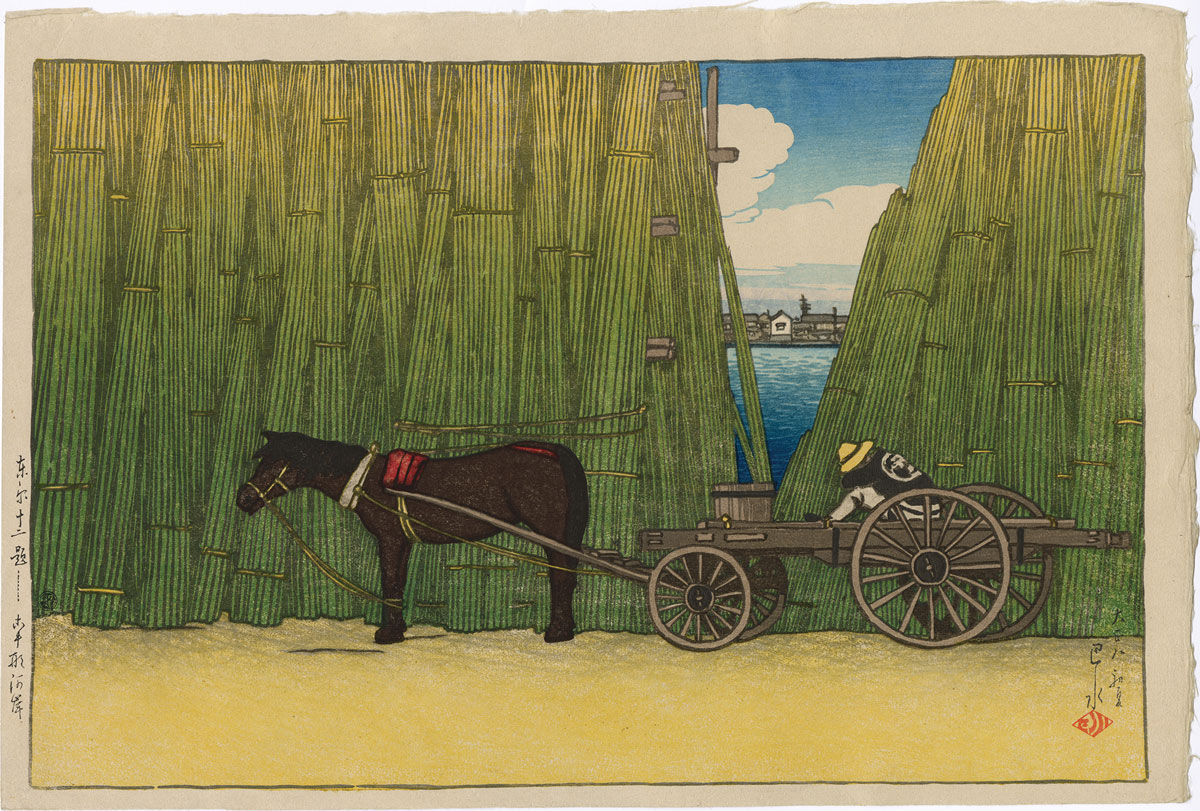
“Kawase Hasui’s Komagata Embankment from the series Twelve Scenes of Tokyo” (1919) captures a tranquil summer scene on the Sumida River, with a sleeping drayman and his horse framed by stacks of bamboo. The vibrant colors and bold composition reflect Tokyo’s charm during its late Taisho modernization (1912–26). Praised as one of Hasui’s finest summer designs, this scarce pre-earthquake print will be available in Love of Place: The Landscapes of Kawase Hasui, at Egenolf Gallery Japanese Prints, The Luxury Collection Hotel, 151 West 54th Street and Online
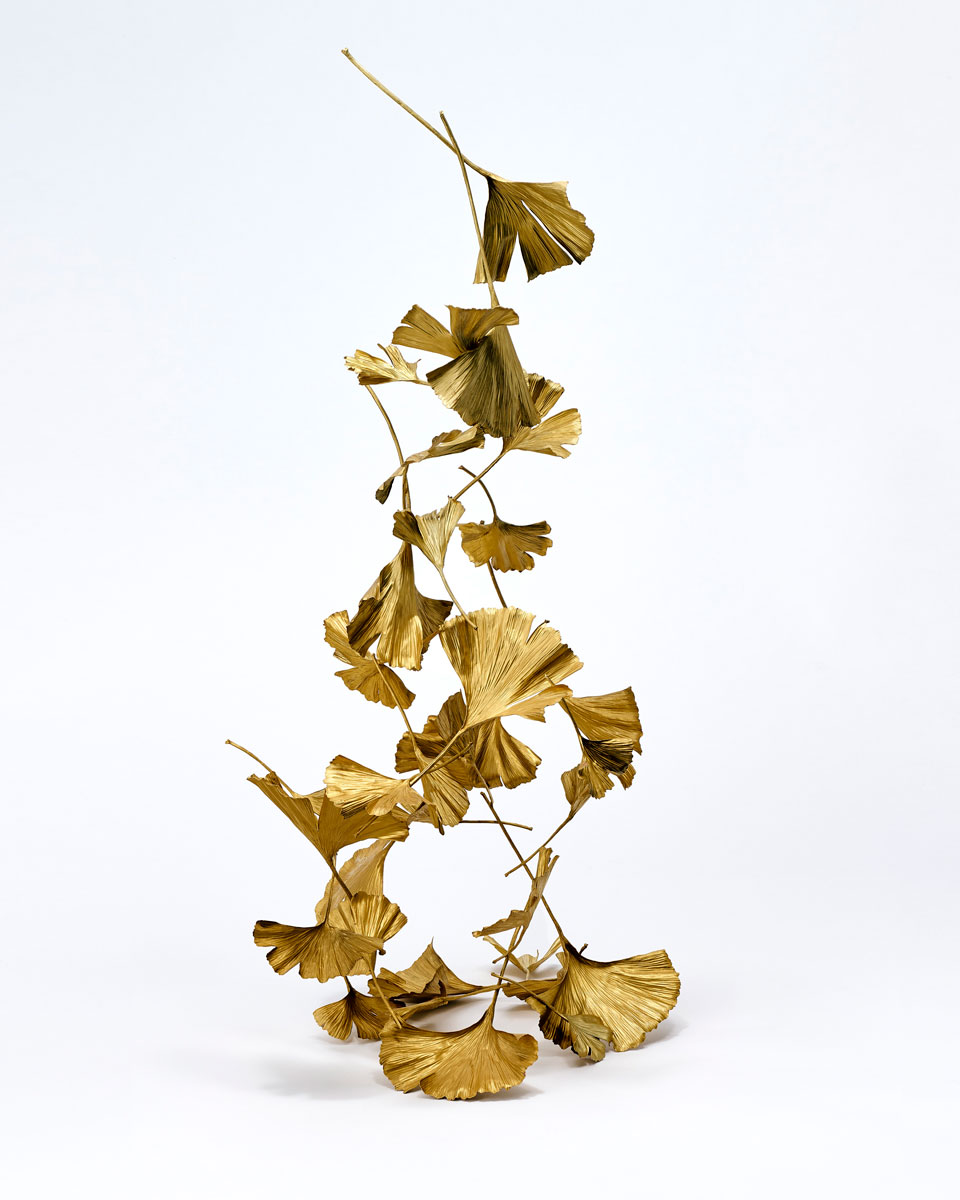
“Gingko Leaf,” by Shota Suzuki, is one of the many luminous pieces offered in Abundance and Light: Gold in Japanese Art, the exhibition at Ippodo Gallery. Symbolizing longevity and endurance, this piece is made of brass and gold powder. 35 N. Moore Street
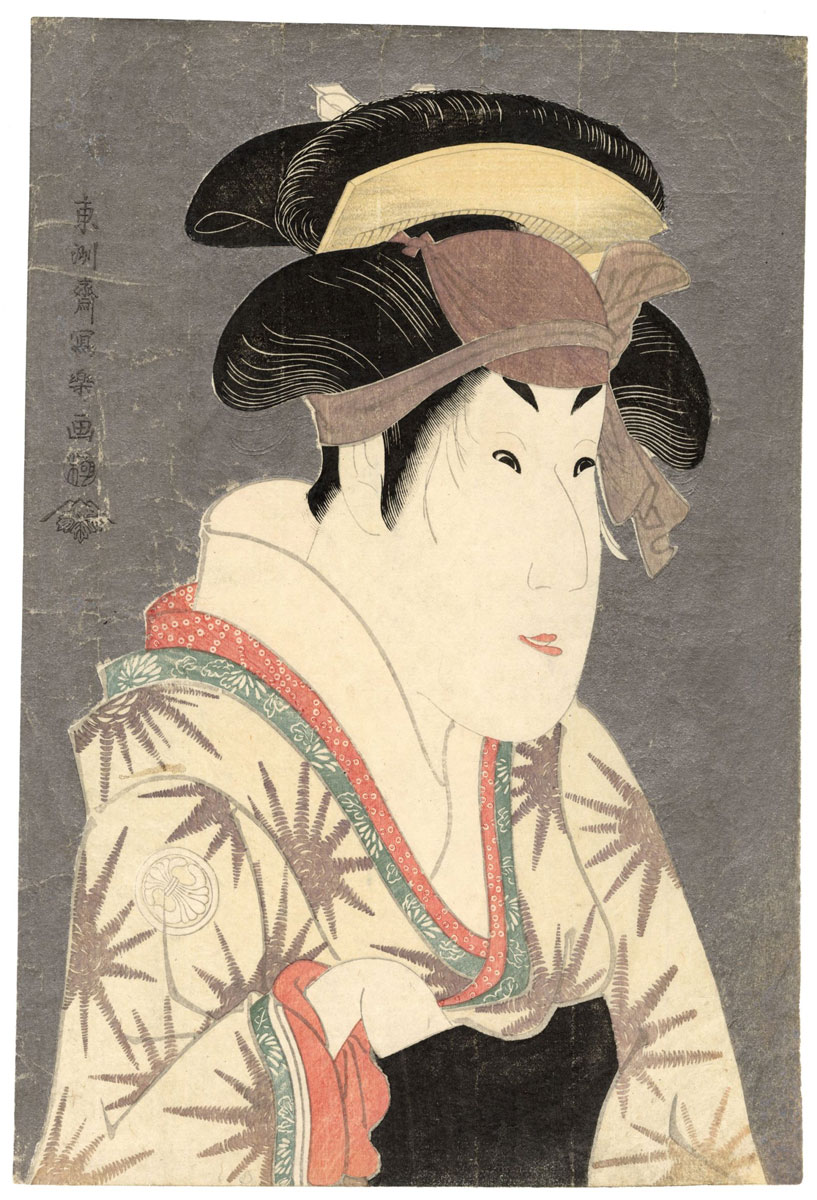
“Segawa Kikunojō III as Ōshizu, the wife of Tanabe Bunzo,” by Tōshūsai Sharaku (active 1794–95), a color woodblock print, is one of twenty-eight half-length portraits of actors by the enigmatic artist Sharaku available in Japanese Prints and Paintings: 1720-1820, at Sebastian Izzard LLC Asian Art. 17 East 76th Street, Floor 3
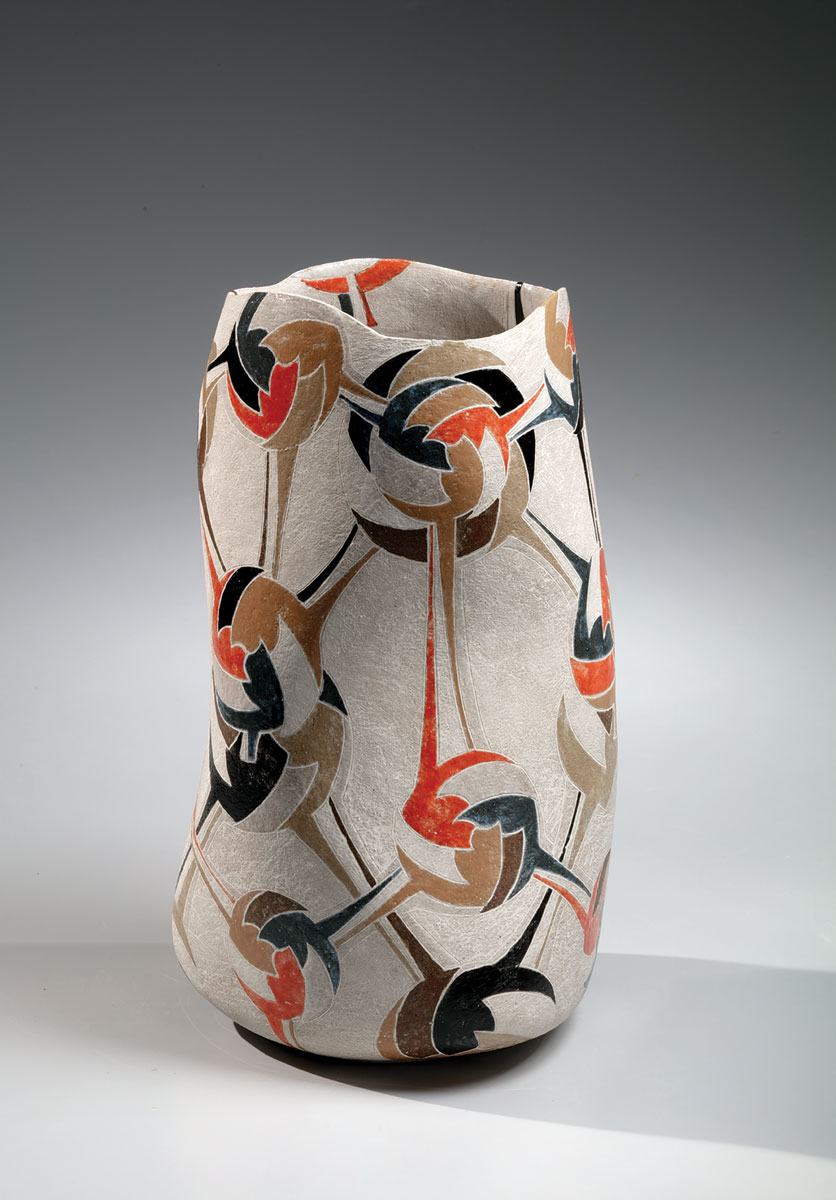
“Overlapping Comma Pattern Vessel,” a colorful ceramic by Wada Morihiro (1944–2008), one of the pieces in Beyond the Surface: The Unity of Form and Pattern in the Work of Wada Morihiro, at Joan B Mirviss LTD, beautifully reflects the artist’s seamless marriage of form and surface. 39 East 78th Street, Suite 401
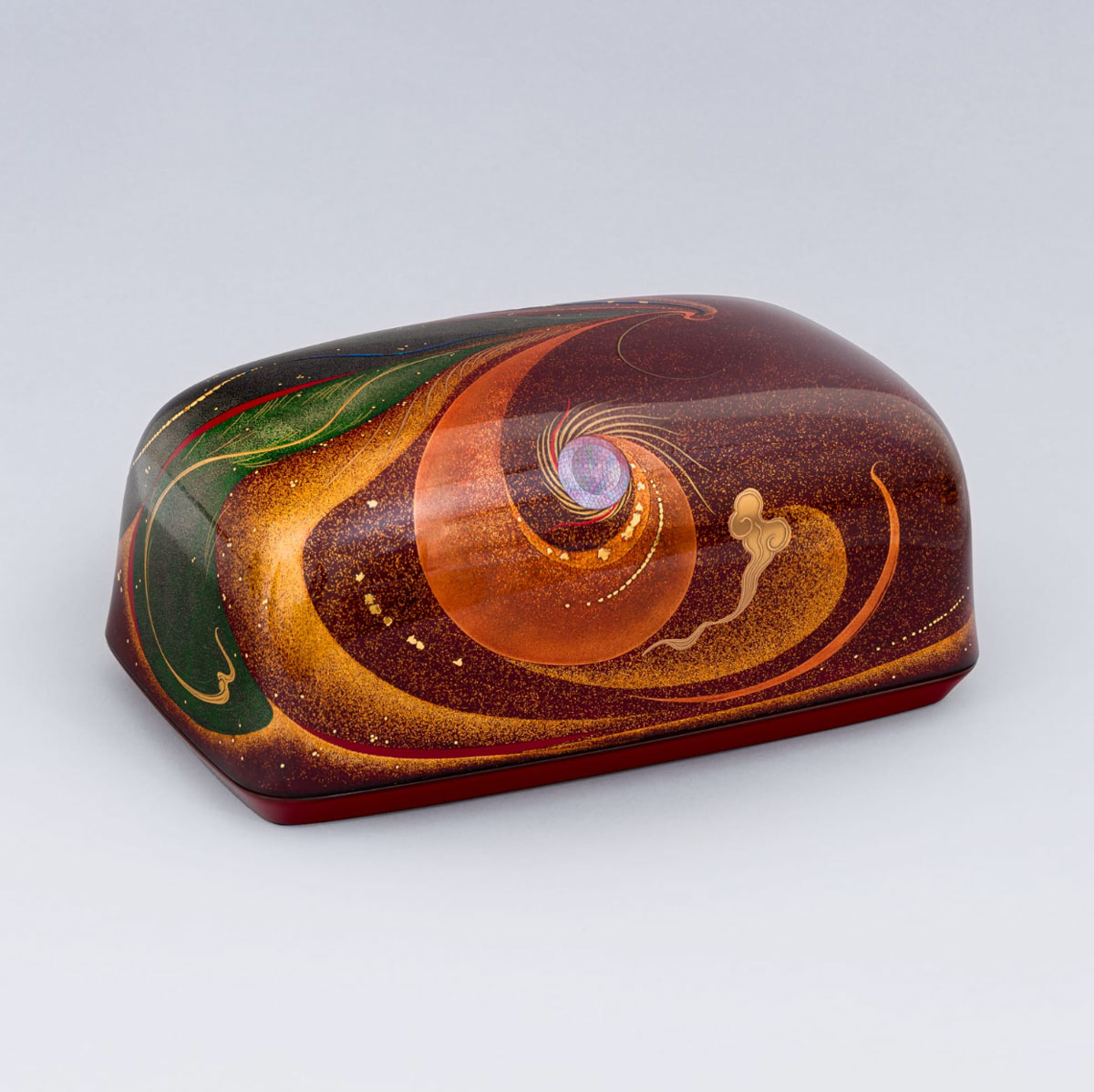
From the fading glow of dusk to the crescent moon casting its luminescence over a sea of clouds, this box tells the story of the ever-changing sky. “Box with Design in Maki-e, ‘Memories Come Back,’ 2013,” in Kogei and Art, at Onishi Gallery, is crafted from white-lipped pearl oyster, South Sea abalone shell, gold, and pearl oyster. 16 East 79th Street
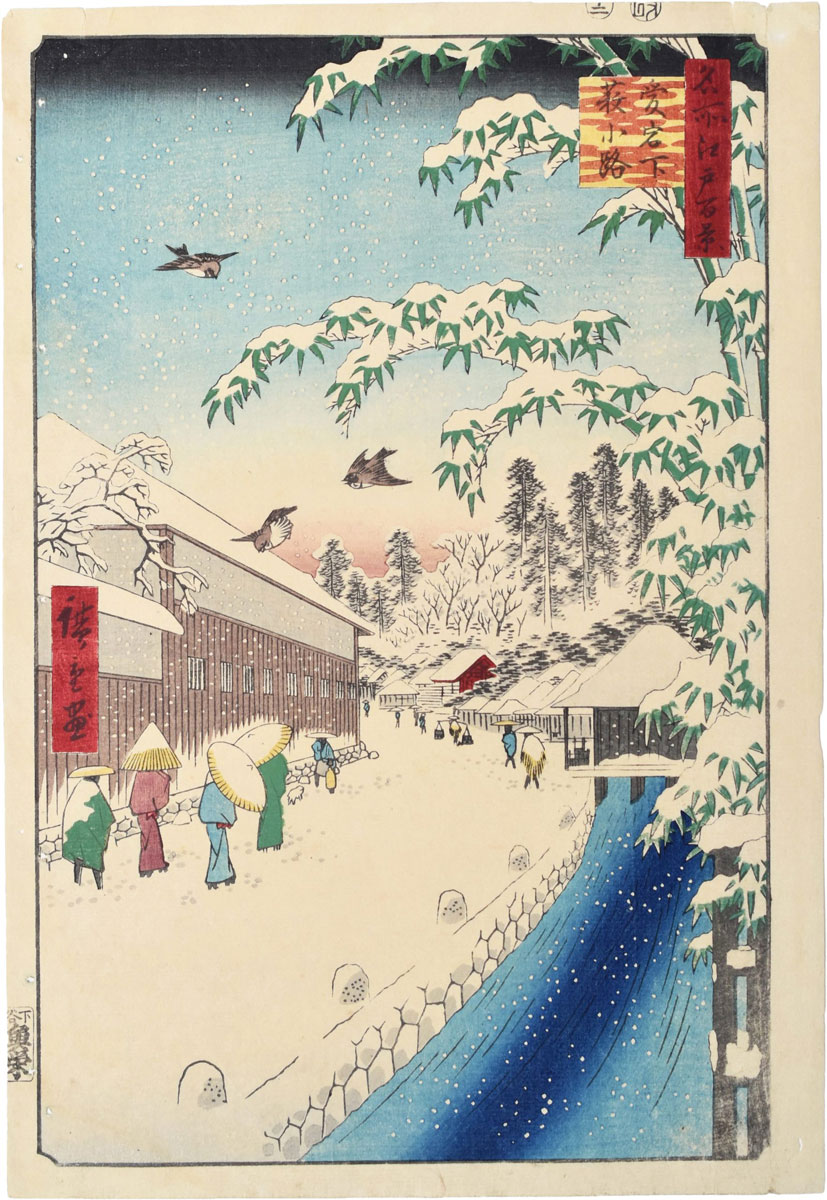
Scholten Japanese Art will present Landscape Escapes: Famous Views of the Floating World, an exhibition focusing on landscape woodblock prints, primarily of the 19th century, including works by the two most beloved masters of the genre, Katsushika Hokusai (1760–1849) and his younger contemporary, Utagawa Hiroshige (1797–1858). 145 West 58th Street, Suite 6D
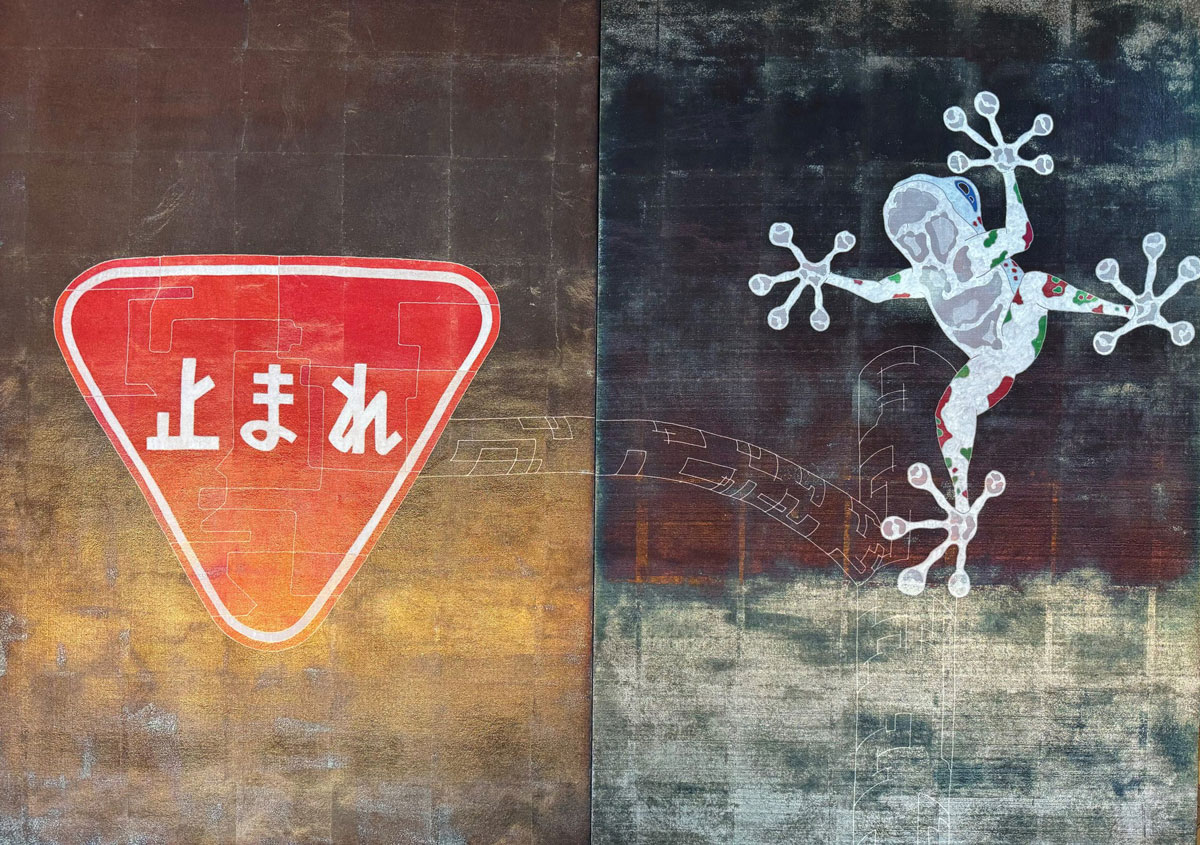
Returning to the fold, Seizan Gallery will present Takashi Seto: Solo Exhibition a single artist show featuring “A-UN (A), 2024.” 525 West 26th Street, Ground Floor
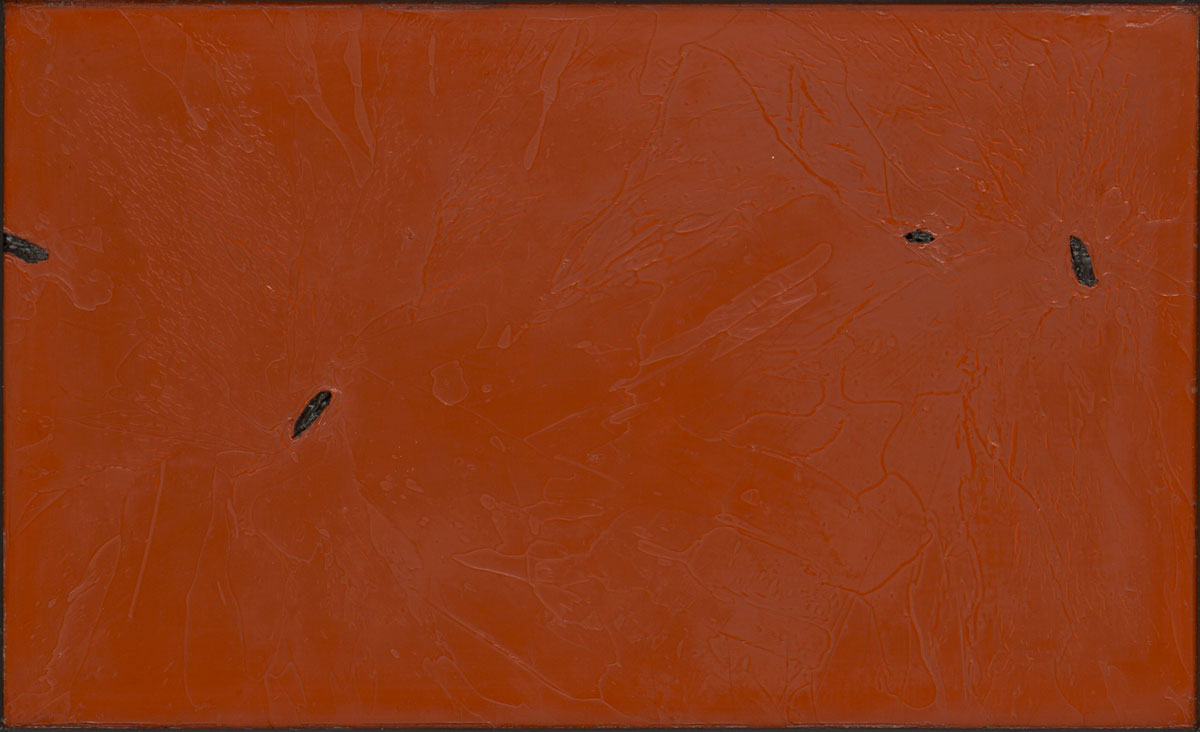
“Tai,” by Japanese artist Yamaguchi Takeo–one of the works of art in Postwar Japanese Calligraphy and Painting at Shibunkaku–reflects his deep connection to his Asian roots, symbolized by his use of yellow ochre and Venetian red. Joan B Mirviss, Ltd. 39 East 78th Street, Suite 401

TAI Modern presents From Timber to Tiger: The Many Bamboos of Japanese Bamboo Art, a retrospective of mixed media bamboo, paintings, and sculpture by the late Nagakura Kenichi, who passed away unexpectedly in 2018. Colnaghi, 23 East 67th Street, Fourth Floor
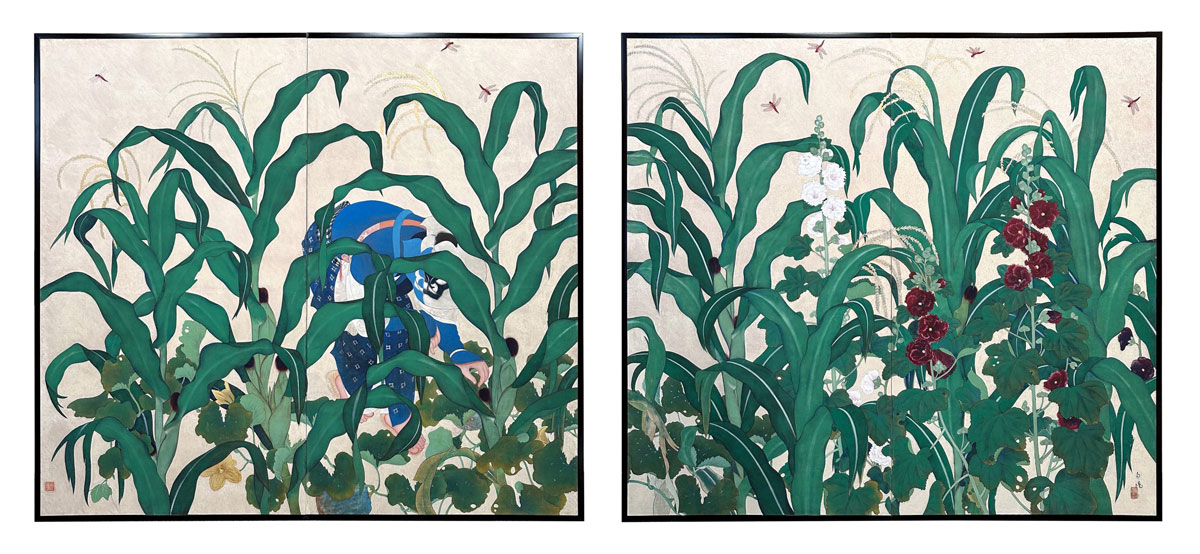
This visually arresting pair of screens–presented at Thomsen Gallery in their exhibition Japanese Modern Masterpieces 1910-1950–melds two strands in the subject matter of Japanese Nihonga painting of the early 20th century which encompasses a focus on plants—both traditional Japanese species and recent imports—and pictures of beautiful women. 9 East 63rd Street
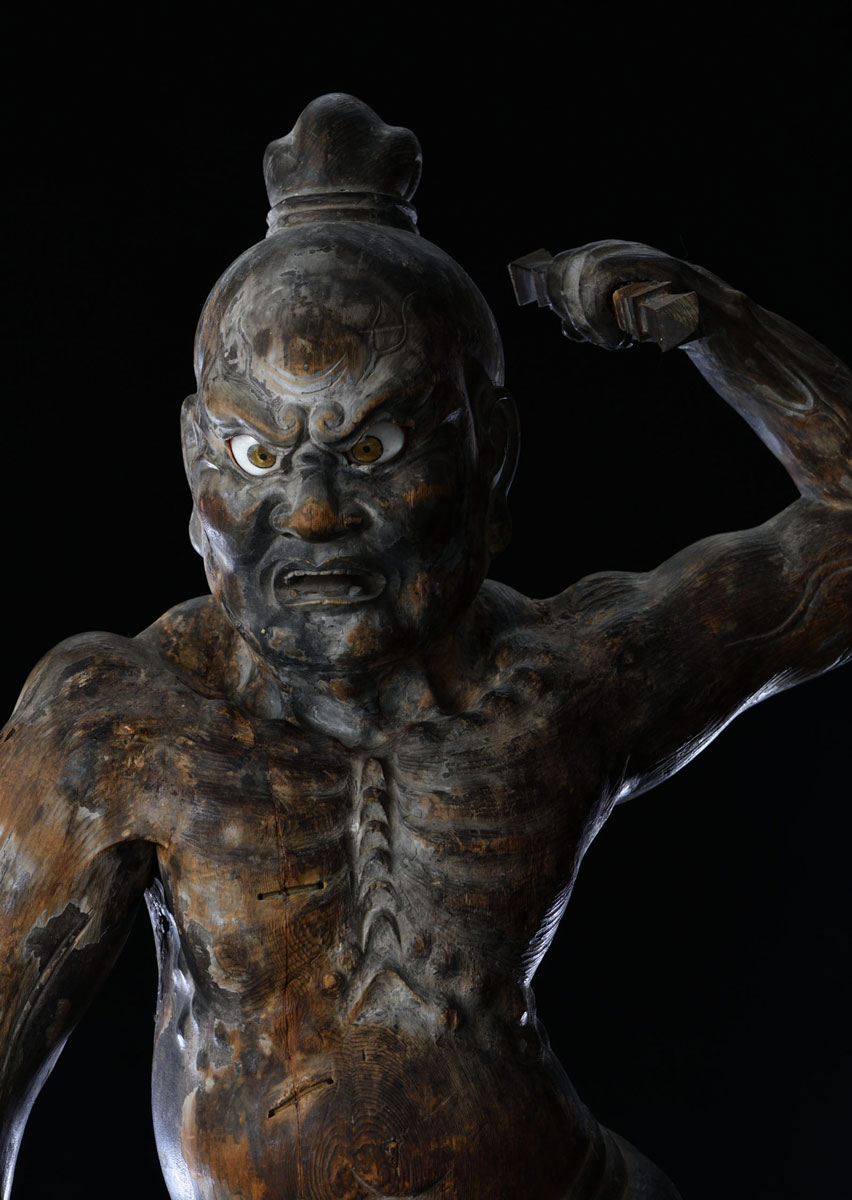
With its wide-open eyes and imposing musculature, Kongo Rikisi (Vajrayaksa)––one of the heavenly protector deities of Buddhism, exemplifies the realism typical of the Kamakura period, which heralded the emergence of the samurai and the transition from the nobility to landowning military men. It is one of many New Acquisitions at Hiroshi Yanagi Oriental Art. Nicholas Hall, 17 East 76th Street, Fourth Floor
Ancient and/or Contemporary Korean Art
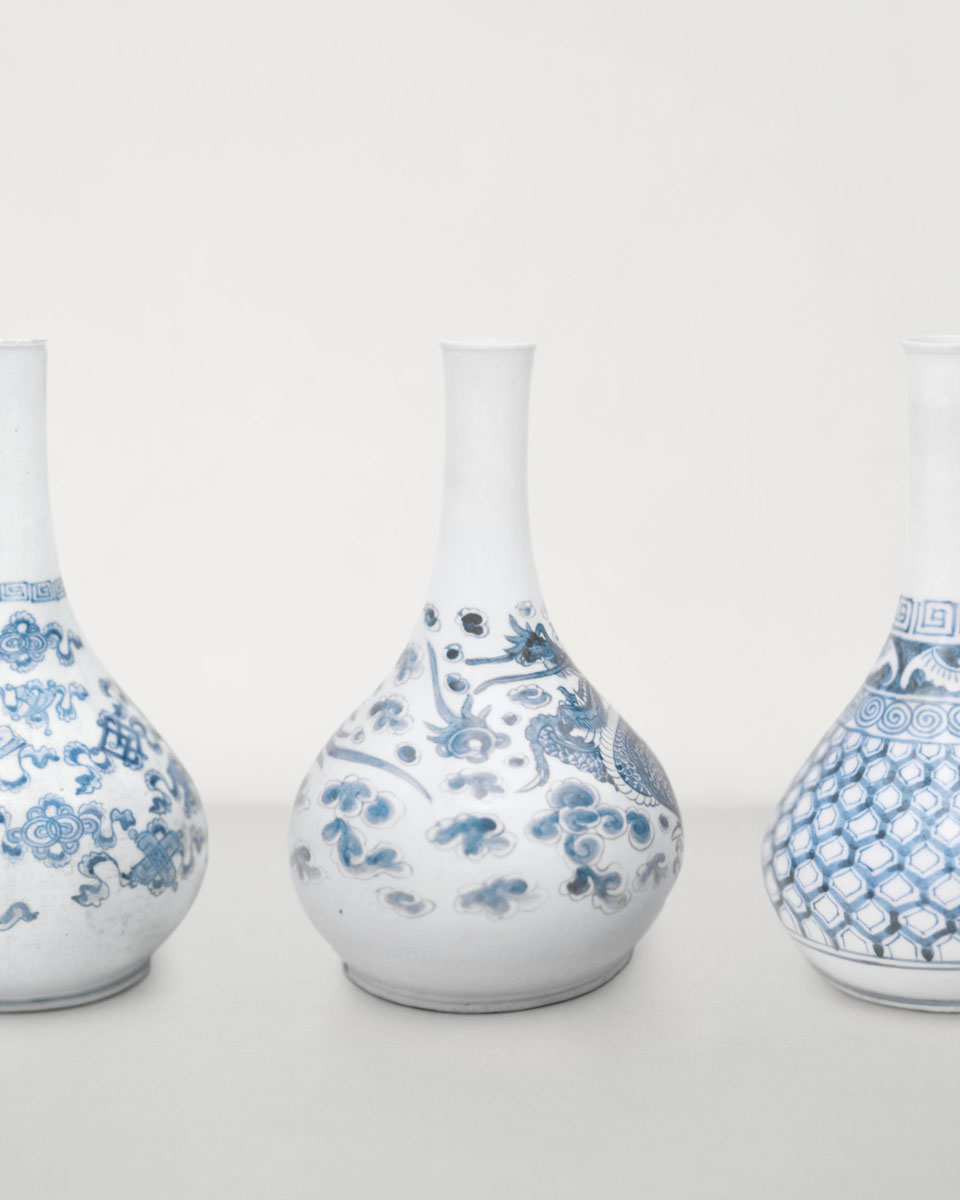
In the exhibition Elegance and Simplicity: Bohnchang Koo and Geejo Lee, at HK Art & Antiques, LLC, Koo Bohnchang photographed these blue-and-white porcelain bottles from the Korean collection of the Victoria and Albert Museum. For him, these wares echo the essence of the Joseon aesthetic. Because they are often stained, cracked, and worn from everyday use, they are a perfect subject through which to convey warm traces of human life. In this series, he highlights the pure beauty of Korea’s cultural heritage. 49 East 78th Street, Suite 4B
Image Captions:
Ancient and/or Contemporary Indian, Himalayan, and Southeast Asian Art
Maharana Jawan Singh (detail)
Udaipur, India, c. 1830
12 x 8 1/4 in.
Credit: Art Passages
Portrait of a reclining beauty, Safavid Persia
Opaque pigments with gold on paper, 17th century
Painting: 3 3/4 x 7 ¼ in. (9.5 by 18.5 cm); folio:
5 1/4 x 8 5/8 in. (13.5 x 22 cm)
Credit: Oliver Forge and Brendan Lynch, Ltd.
Zebra
Mughal, by a court artist, circa 1625
Opaque pigments and gold on paper
Folio: 13.8 x 19.7 cm
Credit: Francesca Galloway
AVALOKITESHVARA
Central Tibet, 15th century
Copper alloy
Height: 13¾ in. (34.9 cm)
Credit: Carlton Rochell Asian Art
Ancient and/or Contemporary Chinese and Vietnamese Art
Wucius Wong
Mountain Dream 8, 1985
Chinese ink & color on rice paper
30 ¾ x 19 ¼ in. (78 x 49 cm)
Credit: Alisan Fine Arts
Pair of Chinese Imperial Green Enameled Dragon Dishes
Qianlong mark and period, AD 1736-1795
Diameter: 7 in. (17.7 cm)
Ex: Private American Collection, acquired from our gallery in 1967
Credit: Ralph M. Chait Galleries, Inc.
Qian Du (1764-1845)
Summer Reflections by the Lakeside Pavilion
Ink and color on silk, hanging scroll
33 1/4 x 11 7/8 in.
Credit: Fu Qiumeng Fine Art
Kang Chunhui
Sumeru NO. 34, 2023
Ink and mineral pigment on paper
Credit: INKStudio
Bronze Snake-decorated Finials
Eastern Zhou, 5th century BCE
Length of each: 5 in. (12.7 cm)
Credit: Kaikodo LLC
Abraham Ortelius
Maris Pacifici, 1589
19 1/2 x 13 1/2 in.; sheet: 25 13/16 x 17 7/16 in.
Credit: Lark Mason Associates
John Thomson
Rapids at Nanping, River Min
China, circa 1870
Carbon print
Credit: Loewentheil Collection of Chinese Photography
A Longquan Celadon “Yen Yen” Vase with Applied Scrolling Floral Decoration
Yuan Dynasty, 1271-1368 AD, China
Height: 25 cm
Credit: Zetterquist Galleries
Ancient and/or Contemporary Japanese Art
Kitagawa Utamaro (1753-1806)
Courtesan applying eyebrow makeup
Circa 1795-1796 (minor restorations)
Oban tate-e: 37.9 x 25.1 cm
Signed Utamaro hitsu, publisher Iseya Magobei, censor stamp kiwame
Circa 1795-1796 (minor restorations)
Credit: The Art of Japan
A Group of Ceramic Works by Kawai Kanijro (1890-1966)
From left to right: the flat, square jar from the mid-1950s, the 1961 stoneware flask featuring Kawai’s signature Gosu blue glaze, and the 1955 platter with a Hakeme glaze, which reflects Kawai’s deep engagement with traditional Korean ceramic techniques—an important influence within the Mingei Movement.
Credit: Dai Ichi Arts, Ltd.
Yamanba
Deme Yukan
Early Edo period, Japan
Credit: Carole Davenport
Kawase Hasui (1883-1957)
Komagata Embankment from the series Twelve Scenes of Tokyo, 1919
Woodblock print
26.3 x 39 cm
Credit: Egenolf Gallery Japanese Prints
Shota Suzuki
Gingko Leaf, 2023
Brass, gold powder
H:21 5/8 x W:9 x D:10 1/4 in (H:55 x W:23 x D:26 cm)
Credit: Ippodo Gallery
Tōshūsai Sharaku (active 1794–95)
Segawa Kikunojō III as Ōshizu, the wife of Tanabe Bunzo, 1794
Color woodblock print
Ōban tate-e, 15 x 10 in. (38.1 x 25.4 cm)
Signed: Tōshūsai Sharaku ga
Censor’s seal: kiwame (certified)
Publisher: Tsutaya Jūzaburō
Credit: Sebastian Izzard LLC Asian Art
Wada Morihiro (1944-2008)
Overlapping Comma Pattern Vessel, ca. 2004
Glazed and slip-glazed stoneware
14 1/2 x 8 1/4 x 8 1/4 in.
Photography by Richard Goodbody (13050)
Credit: Joan B Mirviss LTD
Onihira Keiji
Box with Design in Maki-e, “Memories Come Back,” 2013
White-lipped pearl oyster, South Sea abalone shell, gold, and pearl oyster
5 1/2 × 11 1/2 × 6 1/2 in. (13.7 × 29.5 × 16.7 cm)
Credit: Onishi Gallery
Utagawa Hiroshige (1797-1858)
One Hundred Famous Views of Edo: Atagoshita and Yabu Lane, 1857
Woodblock print
14 x 9 5/8 in. (35.5 by 24.4 cm)
Credit: Scholten Japanese Art
Takashi Seto
A-UN (A) (detail), 2024
Yuzen-dyed silk fabric, gofun, gold leaf, silver leaf, urushi lacquer, cotton fabric mounted on wood panel
55.1 x 39.4 in. (140 x 100 cm)
Credit: Seizan Gallery
Yamaguchi Takeo
(Japanese, 1902-1983)
Tai, 1974
Oil on board, framed
23 x 37 / 26 x 40 cm (overall)
Credit: Shinbunkaku
Nagakura Kenichi
Whirling Dance, 2017
Madake bamboo, washi paper, mixed media
24 x 12 x 8 in.
Credit: Tai Modern
Inoue Hakuyō (1893-1969)
Late Summer, circa 1920, Japan
Pair of two-panel folding screens; mineral pigments shell powder and ink on hemp
Each screen: 66¾ x 74¼ in.
Credit: Thomsen Gallery
Kongo Rikishi Statue (Agyo)
Statue height: 85 cm
Credit: Hiroshi Yanagi Oriental Art
Ancient and/or Contemporary Korean Art
Bohnchang Koo (b. 1953)
“VA 23”, 2017
Archival pigment print
Edition: 2/10
35.4 x 28.3 in. (50 x 40 cm)
Credit: HK Art & Antiques LLC
